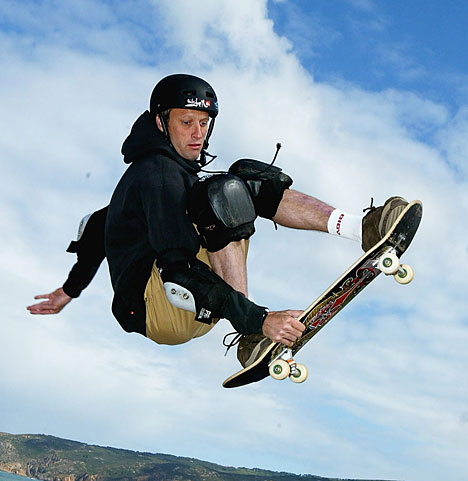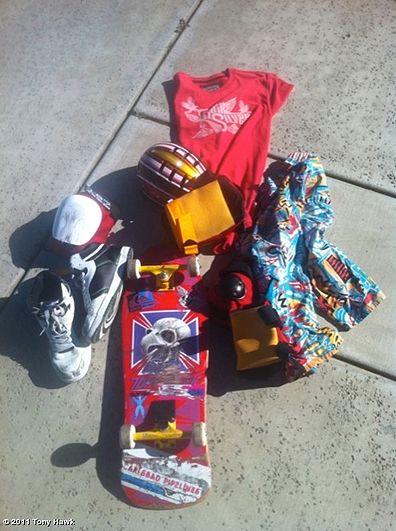Dude! Way to shred the gnar!
The Smithsonian’s National Museum of American History acquired a skateboard deck ridden by renowned skateboarder Tony Hawk following the closing ceremony at the Quiksilver All 80s All Day Vert Challenge Jan. 7.
Tony Hawk was nine years old in 1977 when his brother, Steve, changed his life by giving him a blue fiberglass banana board. Before skateboarding, Tony was a self-described nightmare. But he started goofing around on the thin Bahne skateboard, and his body finally caught up with his brain. “When he started getting good at skating it changed his personality,” says Steve. “Finally he was doing something that he was satisfied with. He became a different guy; he was calm, he started thinking about other people and became more generous.”
By 12, Tony was sponsored by Dogtown skateboards, by 14 he was pro, and by age 16 Tony Hawk was the best skateboarder in the world. In the ensuing 17 years, he entered an estimated 103 pro contests. He won 73 of them, and placed second in 19—by far, the best record in skateboarding’s history.
The board is a 1986 Tony Hawk pro model Powell-Peralta deck ridden in competition by Hawk in the mid-1980s with graphics by Vernon Courtland Johnson (“VCJ”)—an influential skate artist credited with introducing the skull to skate graphic culture. Hawk brought the board out of storage in 2011 and rode it in the Quiksilver event.
“Skateboarding is a sport that highlights the inventive and entrepreneurial spirit of our nation,” says Brent Glass, director of the museum. “Tony Hawk strongly embodies this spirit, and for this reason I am pleased that his deck launches our collecting initiative.”
Hawk’s deck will join a 1978 Honeycomb Pool Board donated by Stacy Peralta and a Powell skateboard in the museum’s permanent sports collection.
This acquisition launches a broader collecting initiative focusing on skateboarding and skate culture in collaboration with the Lemelson Center for the Study of Invention and Innovation based at the American History Museum. The museum is interested in the material culture of skateboarding, including archival items, equipment, technology and other paraphernalia. The Lemelson Center will focus on the inventive aspects within the skating community to complement its existing work with snowboarding and sailboarding innovators.
Posted: 10 January 2011
- Categories:





